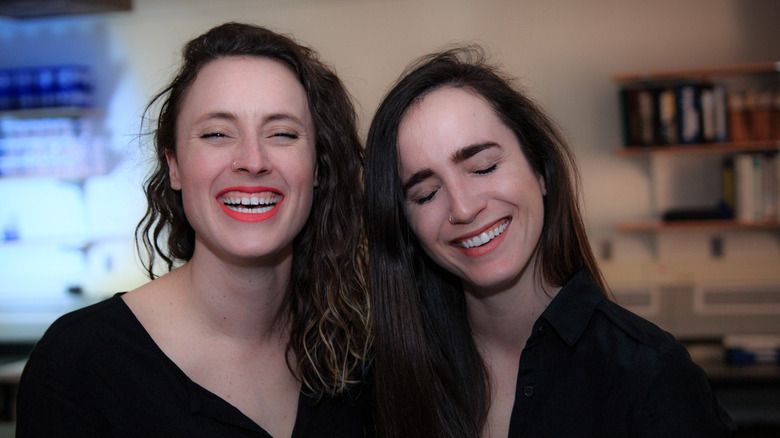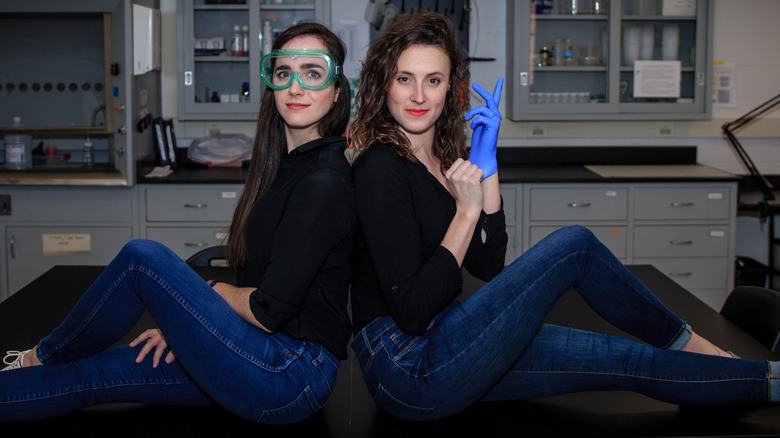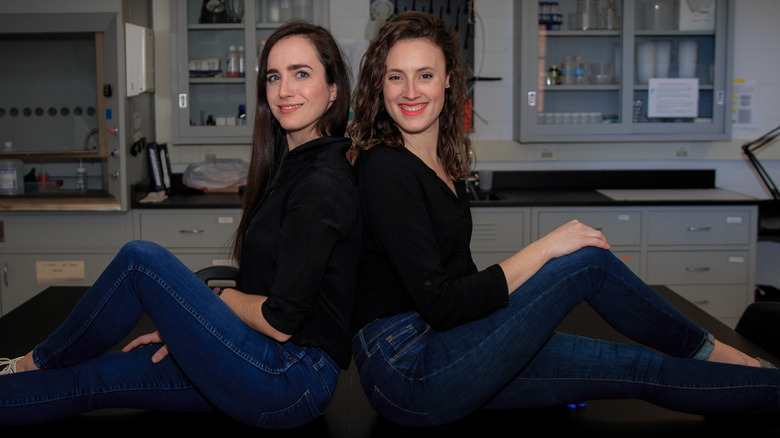This Podcast Will Kill You Hosts Erin Updyke & Erin Welsh On Making Science Accessible - Exclusive
Erin Welsh and Erin Updyke came up with the idea for "This Podcast Will Kill You" while presenting their Ph.D. research on disease ecology — the study of how the environment impacts diseases — at academic conferences and listening to other people's epidemiological research. As the final year of their Ph.D. programs grew near, the Erins wondered how any of the information they'd learned would be communicated to the general public. Though there are established ways to spread information in the academic world — publishing papers and research studies, presenting at conferences, giving guest lectures — there aren't that many ways to communicate research to the general public.
One of the Erins joked that they should start a podcast, one that broke down everything people needed to know about common diseases in a way that anyone could understand. They laughed it off for a while, but the idea wouldn't go away — so they went for it.
In an exclusive interview with Health Digest, the Erins talked about why it's so important to make science accessible to the public, how their podcast does that, and why bridging the gap between the public and the scientific community is more important than ever.
Breaking the scientific language barrier
Erin Updyke and Erin Welsh said that one of the biggest barriers separating the scientific community and its research from the public is language.
"We have to use scientific language in communicating with other scientists or other researchers," Updyke said. "Sometimes, that includes a lot of jargon. It can include a lot of depersonalization and very specific minutiae and detail that are incredibly important when you're communicating with a very specific audience. What we were missing was being able to communicate with a larger public, like with our family, who's not into disease or didn't think they were until we started this podcast."
Welsh added that scientists, researchers, and doctors also have to present their research in a "detached" and "impersonal" way that makes it hard to grasp the context. One of the biggest goals of their podcast was not only to present information about diseases in plain English, but also to present that information with context so people could understand why it's important.
"When you realize how integrated something like a disease is in our history, and our biology, and our sociology, it becomes a lot more interesting and engaging," Updyke explained. "You can tell a story in a way that you don't always have the opportunity to do in purely scientific writing."
The necessity of clear scientific communication
Erin Welsh and Erin Updyke started their podcast in 2017. They never imagined that they'd be doing a podcast about infectious diseases during a global pandemic. But since Covid hit, their podcast has been more important than ever.
"It's been interesting to see how information has been presented. It's resulted in a lot of good information coming out and a lot of bad information coming out," Welsh said. "Science communication in general has really grown in the pandemic because people realize that there's an incredible need to communicate what is happening with this virus, and what is happening with this disease, and how it's transmitted, how vaccines work."
Welsh explained that she and Updyke interact with the podcast's audience constantly to find out what's confusing about the information they're getting and what they wish they knew about the pandemic. This has allowed the Erins to tailor their episodes to what listeners actually need.
Welsh and Updyke see themselves as translators between the scientific community and the public, making sure that the public has all the information they need, from highly knowledgeable and reputable sources, presented in a way they can understand — and they take that job very seriously.
This Podcast Will Kill You airs on the Exactly Right Media Network ("My Favorite Murder," "Adulting with Michelle Buteau and Jordan Carlos") and is available wherever you listen to podcasts.



